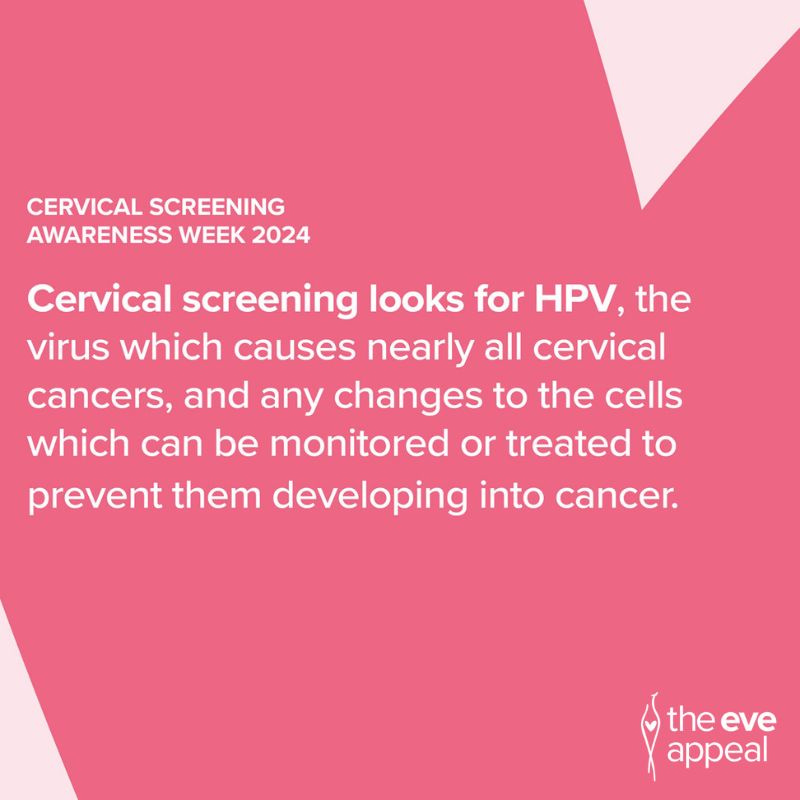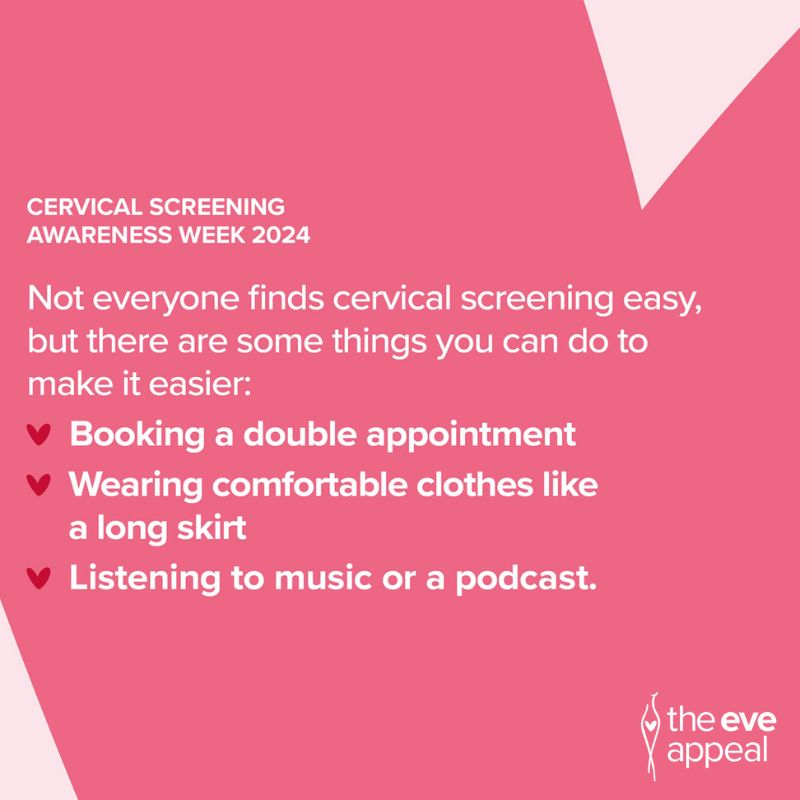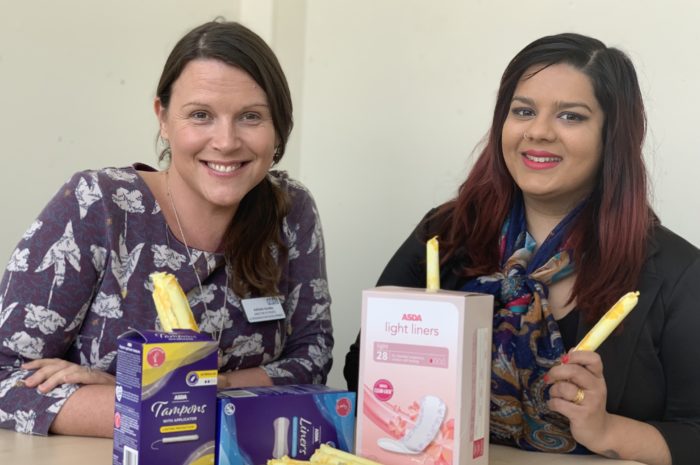- 92% of UK females said they understand well what a cervical screening test is for
- But 58% wrongly thought that it was a detection tool, 25% thought it detected all gynaecological cancers and 26% thought it acted as a general gynaecological check-up
- Only 32% of UK females knew the screening test is to prevent cancer from developing
- 29% said they hadn’t attended a cervical screening because they didn’t want to have one, 27% because they had had a bad past experience and 16% because they didn’t have time
A new survey (YouGov) commissioned by the UK’s leading gynaecological cancer charity The Eve Appeal has revealed a lack of understanding about what a cervical screening test is for and a range of barriers to attending a screening appointment when offered it.
Out of the 1070 women surveyed, 9 in every 10 (92%) said they thought they understood the purpose of cervical screening ‘very or fairly well’. However, nearly 2 in 3 (58%) respondents wrongly thought that a cervical screening test detected cancer in the early stages and only 1 in 3 women (32%) knew that the test was to prevent cancer from developing.
A quarter of women (26%) thought it acted as a general gynaecological health check and the same amount (26%) thought it picked up all gynaecological cancers.
The survey also found a range of barriers to attending a cervical screening appointment. Of the people questioned who had been invited for a screening but not attended, nearly 1 in 3 (29%) said they ‘didn’t want to have one’ and 27% said they had had ‘a bad experience with cervical screening in the past’. 16% said they ‘didn’t have time’ and 12% said the test ‘wasn’t a priority at that time’.
The survey was commissioned for Cervical Screening Awareness Week which runs from 17 to 23 June. Every day in the UK, two women lose their lives to cervical cancer and nine more receive a life-changing diagnosis. Cervical cancer can affect anyone with a cervix at any age but it is most common between the ages of 30-34.
Cervical screening is a test offered to women and people with a cervix aged between 25 and 64 to help prevent cervical cancer. It looks for HPV (the virus which causes nearly all cervical cancers) and any changes to the cells which can then be treated or monitored to prevent them developing into cancer. Cervical Screening Awareness Weekhighlights the importance of regular screening to try and increase attendance.
Athena Lamnisos, The Eve Appeal CEO, says: “These survey findings clearly show that we have two jobs to do – communicating what the cervical screening test is for and overcoming the barriers to attendance. If we can do the first one effectively, it should have a real impact on the second. We have a very successful cervical screening programme in this country, it’s already estimated to save over 5,000 lives each year. We need to keep increasing that number by making sure people attend their tests when they are offered them. A big part of that is empowering them with information. We know cervical screening isn’t easy for everybody, and we are here with information, tips and support to help you get screened.”
Dr Aziza Sesay, GP, says: “As a GP, seeing these stats and knowing that cervical cancer has the potential to one day be eliminated and that screening plays a crucial role in this, it really emphasises the importance of health awareness for the general population to encourage more to attend their appointments. More needs to also be done to address the barriers that exist, improve access and support those who find screening difficult overall. The NHS has set a target to eliminate cervical cancer by 2040. This is possible if we can reach the target of at least 80% attending their screening. Currently, national uptake averages at just over 68%. There is a lot of work to be done but I am hopeful.”
Tinuke Awe, Co-founder of Five X More, says: “More awareness needs to be made on getting women to understand exactly what a cervical screening is and its crucial role in prevention. Personally, my last smear test, which was long overdue, revealed high-grade changes. I’m grateful I finally had the screening and subsequently had a procedure to remove the abnormal cells, but I dread to think what could have happened if I had left it any longer. It’s vital for women to realise that regular attendance can save lives by detecting changes early and preventing cervical cancer from developing.”
The Eve Appeal has put together some information and tips to help make cervical screening tests a bit easier here: eveappeal.org.uk/screening
Anyone can contact Ask Eve, The Eve Appeal’s nurse-led information service, for information and advice on gynae health, including HPV, cervical screening and follow up – by emailing nurse@eveappeal.org.uk or calling 0808 802 0019.
ENDS
Press contacts: Lydia Brain, Communications and Media Manager on 020 7605 0108 or lydia.brain@eveappeal.org.uk
1. Key signs and symptoms of cervical cancer
- abnormal vaginal bleeding (between periods, after sex, after the menopause or much heavier than is normal for you)
- changes to vaginal discharge (including a change in smell)
- pain or discomfort during sex
- unexplained pain in lower back or between hip bones
2. Cervical cancer is cancer of the cervix (which connects the womb and vagina and is sometimes called the neck of the womb). Cervical cancer can affect anyone with a cervix at any age and is most common in women between the ages of 30-34. More information including on signs, symptoms, risk factors, information and tips for screening, treatment and support can be found here: eveappeal.org.uk/cervical
3. The Eve Appeal is the only UK charity raising awareness and funding research into the prevention and earlier diagnosis of all five gynaecological cancers- womb, ovarian, cervical, vulval and vaginal. It was set up to save lives by funding ground-breaking research focused on developing effective methods of risk prediction, earlier detection and screening for these little-know and under-funded cancers. The world-leading research that we fund is ambitious but our vision is simple; a future where gynaecological cancers are diseases of the past. eveappeal.org.uk @eveappeal
4. The YouGov plc survey was conducted online. All figures, unless otherwise stated, are from YouGov Plc. Total sample size was 1070 UK females, 18+. Fieldwork was undertaken between 12th – 13th June 2024.





